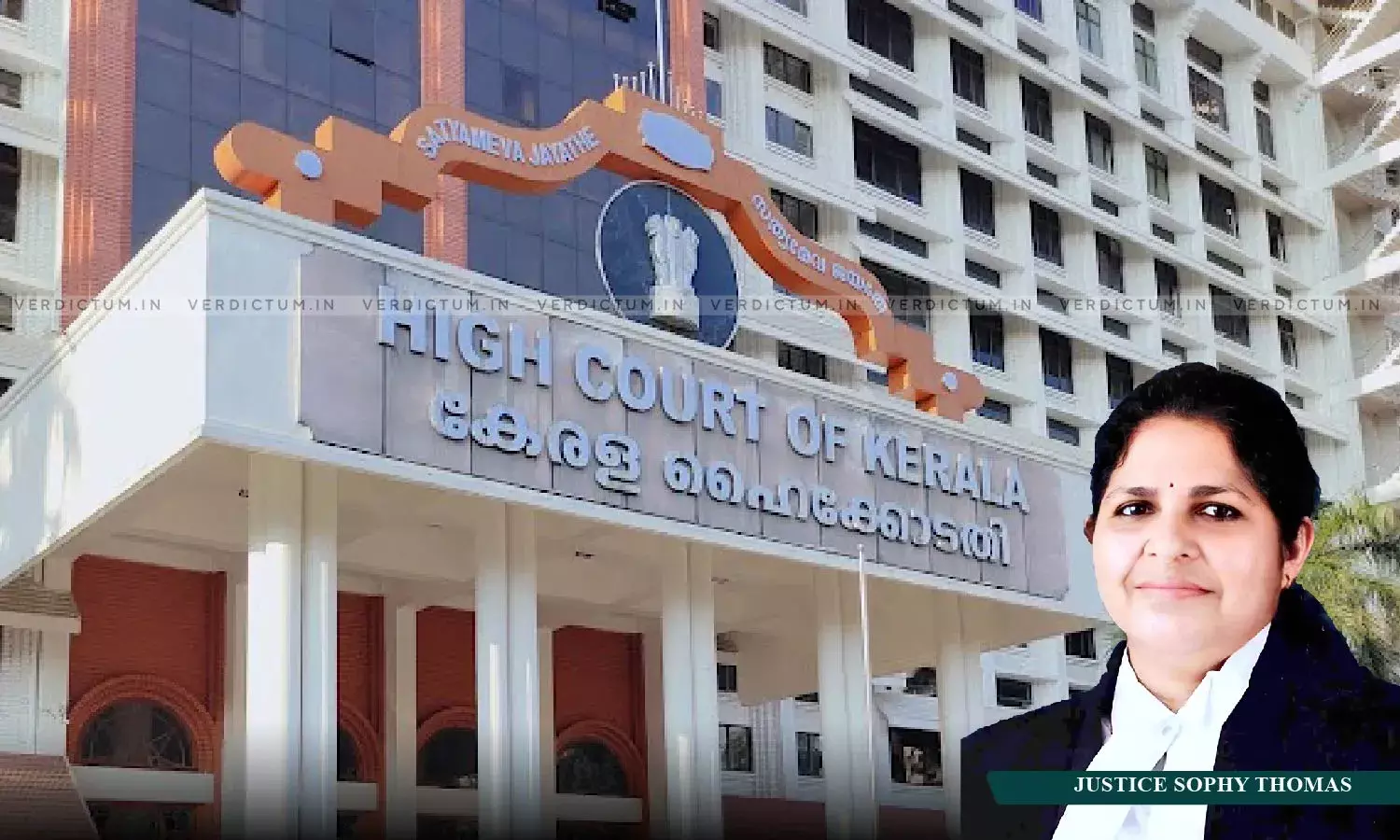Plea Of Alibi Cannot Be Entertained Before Prosecution Is Given An Opportunity To Establish Its Case: Kerala HC Refuses To Quash POCSO Case

The Kerala High Court held that the burden of proof lies heavily on the accused to prove the alibi with absolute certainty, and the same can only be addressed after the prosecution has discharged its burden satisfactorily.
The petition was filed by the sole accused, seeking the quashing of final report and the subsequent proceedings. The prosecution alleged that the petitioner sexually assaulted an 11-year-old girl on multiple occasions, but the petitioner claimed innocence and presented passports to prove he was abroad during the alleged incidents.
A Bench of Justice Sophy Thomas held, “In a plea of alibi, it is the burden of the accused to prove with absolute certainty that the presence of the accused at the scene of crime at the time of occurrence was rather an impossibility. He has to adduce positive evidence to prove the plea of alibi, and that opportunity arises only when prosecution discharges its burden to prove the incident, and the participation of the accused in that incident. Plea of alibi is a defence available for the accused, when prosecution establishes the case against him. Hence it has to be used as a shield, and not as a sword. So a plea of alibi taken by the accused need not be entertained, till prosecution establishes its case satisfactorily. Therefore the plea of alibi cannot be entertained, before prosecution is given an opportunity to establish its case.”
Advocate Vishnu Bhuvanendran appeared for the Petitioner and Advocate Prasanth M.P appeared for the Respondents.
The Court noted the seriousness of the charges and the burden on the petitioner to prove his alibi. While acknowledging the passports as evidence of travel, the Court emphasized that the burden of proof lies heavily on the accused. The Court added, “The victim girl is aged only 11. The petitioner claims to be a close relative of the victim. So, the chances of mistaken identity is very rare. But, regarding the date of assault mentioned by the victim girl, who is aged only 11, we cannot expect that a 11 year old girl will remember all the dates of sexual assault on her, with mathematical exactitude.”
The Court also highlighted that the plea of alibi should be considered only after the prosecution has presented its evidence establishing the incident and the accused's participation. The Court said, “Moreover, we may not know at this stage regarding the manipulations or malpractices if any done in his passport or travel documents. So, at present, it is not safe to quash the final report, in which the petitioner is facing charges of serious offences under Sections 376AB, 376(2)(n) of IPC and Sections 3(b), 4, 5(l), 5(m) and 6 (1) of the POCSO Act, 2012.”
Citing legal precedents, the Court emphasized that the plea of alibi must be proven with absolute certainty to exclude the possibility of the accused's presence at the scene of the crime. The Court said, “It is the burden of the prosecution to prove the incident, and also the role of the accused in that incident. That burden will not be lessened by the mere fact that the accused had adopted the defence of Alibi. Only when prosecution succeeds in discharging the burden by proving the incident, and by proving participation of the accused in that incident, the plea of alibi put up by the accused needs to be considered. When the evidence adduced by prosecution is able to create a reasonable doubt in the mind of the court, about the presence of the accused in the scene of crime, at the time of occurrence, the accused is definitely entitled to get benefit of that doubt.”
Since the prosecution had yet to present its evidence, the Court dismissed the petition but allowed the petitioner to raise the plea of alibi during the trial and provide positive evidence to support it.
Cause Title: Khalid v. State of Kerala & Anr., [2024/KER/17378]
Appearance:
Petitioner: Advocates Vishnu Bhuvanendran, B. Anusree, Miral K. Joy, Abhilash C.V., Varun Jacob
Respondents: Advocate Prasanth M.P
Click here to read/download Order


